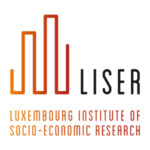
RELIANCE-Breast Cancer Pilot Study
This pilot study on REaL-life cANCEr epidemiology aims to identify risk factors for Breast Cancer with particular focus on prevention and care.
This research will provide important insights to better understand the return to work after breast cancer diagnosis and further support more effective breast cancer patient pathways in real-life.
Luxembourg launches new study for breast cancer patients
The RELIANCE – Breast Cancer pilot study aims to assess for the first time the epidemiology of breast cancer in Luxembourg of all breast cancer patients being diagnosed or treated in Luxembourg in a two-step approach.

The first step aims to study the breast cancer burden, access to breast cancer diagnosis and treatment (including waiting times), and breast cancer survival by using Luxembourg National Cancer Registry (RNC) data, being used for the first time for research. The second step will collect new data to provide important insights into the associated risk factors for breast cancer and to investigate the barriers to and facilitators of returning to work in Luxembourg after a breast cancer diagnosis.
How will data be collected?
The Occupational Health Service (Service de santé au travail multisectoriel – STM) will send invitation letters to all breast cancer survivors :
- who visited the STM before their return to work after their breast cancer diagnosis and/or treatment period
- who were aged between 18 and 65 years at the time of diagnosis
- who were diagnosed or treated in Luxembourg between 2013 and 2018.
This invitation letter will guide participants to an online questionnaire.
To enrich the potential of this study, collected data will be linked, in case of consent, to data from the STM and RNC.
Who is supporting the study?
The pluridisciplinary research team is led by Claudine Backes, PhD, Scientific Director of the National Cancer Registry of Luxembourg (Registre National du Cancer – RNC) and head of the Cancer and Prevention Epidemiology Group (EPI CAN) at the LIH. Project partners include the Occupational Health Service (Service de santé au travail multisectoriel – STM) and the Luxembourg Institute of Socio-Economic Research (LISER).
The study is carried out as a part of the “Plan National Cancer 2020-2024” and is supported by the Directorate of Health (Direction de la santé) of Luxembourg.
Project Leaders

Partners
Contact Us
If you meet the inclusion criteria or know someone who does, and you would like to learn more about this study, please do not hesitate to contact us: reliance@stm.lu
For more information about the study, please reach out to the Principal Investigator:

Backes











